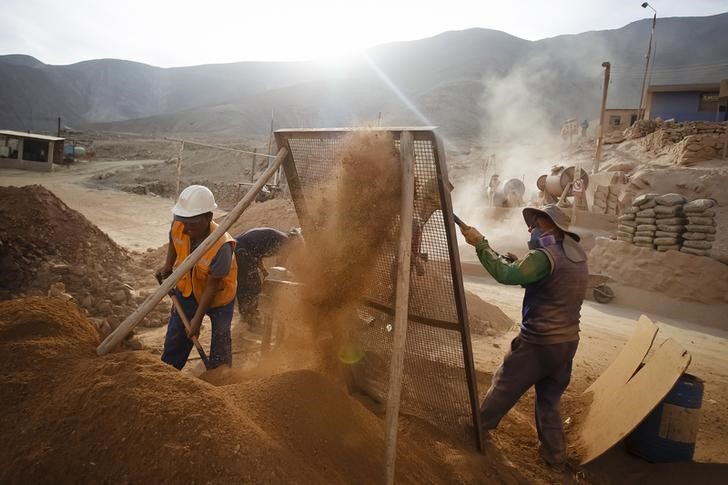LIMA, Feb 16 (Reuters) - Families in Peru that were relocated to make way for MMG Ltd's 1208.HK huge Las Bambas copper project occupied their former lands inside the mine on Tuesday to press the company for compensation, the country's ombudsman and a local leader said.
The protest in a remote highland region has not affected operations at the mine, said the community's vice president, Obispo Huamani, and Artemio Solano, the regional representative of Peru's ombudsman.
The mine's vice president of corporate affairs, Domingo Drago, denied anyone had invaded company property.
Las Bambas, which recently started production and cost $7.4 billion to build, is expected to become one of the world's biggest mines with annual output of about 400,000 tonnes.
It is also expected to propel an economic recovery in Peru this year and help the Andean country become the world's second biggest copper supplier after Chile.
Huamani said former residents of Fuerabamba would remain inside the mine until MMG fulfilled a series of commitments, including paying each family the remaining half of a 400,000 soles ($113,955) compensation pledge and providing teachers for new schools.
Solano said the Melbourne, Australia-based company had agreed to fully compensate community members only once all families had relocated. But 15 families have refused to move to the new town of Nueva Fuerabamba that MMG built.
Authorities who talked with protesters on Tuesday reported that 40 former residents were inside the mine and building shelters, Solano said.
Three people were killed in protests against Las Bambas in September in a dispute with other communities that stemmed from a revision to the mine's environmental plan. current conflict overlapped with a visit from President Ollanta Humala, who praised Las Bambas as a key motor of growth.
Huamani said the Fuerabamba community was not opposed to the mine but would insist the company deliver more benefits.
Peru is rife with disputes over mining, especially related to water. Two major projects have been derailed because of local rallies in recent years.
But no project in Peru at this stage of development has ever been stopped by protests.
